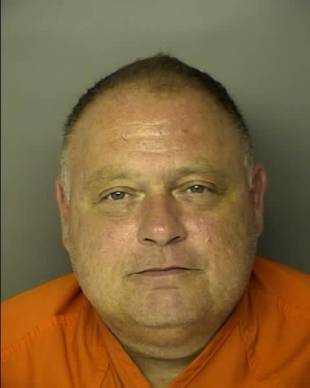
Summary Judgment Ruling In Favor of Forgery Victim Allows Case to Proceed to Trial
As I’ve written here, I have been representing three victims in a brazen and complex real estate forgery scam. The ringleader was Allen Seymour of Oxford, who used forged deeds, fake notary stamps and driver’s licenses to sell properties out from under homeowners, flipping their properties to wealthy investors, and pocketing the cash. Seymour targeted properties in Cambridge, Brookline, and Somerville. By accounts, he made off with over $2M in illicit sale proceeds. Seymour also worked with a group of accomplices including a Newton police lieutenant. The cases have been featured in several Fox News 25 segments. While Seymour remains in jail awaiting trial on 22 felony indictments, the civil cases have been ongoing for almost two years, and are heading towards trial.
I just received the first major court ruling in the cases from Superior Court Justice Douglas Wilkins. The ruling is noteworthy because it appears to be the first time a Massachusetts judge has issued a written decision dealing with the unique type of forgery that occurred in this case.
The Deed Forgery Scam


The facts of the case are pretty surreal. My client is the owner of a three family property in Brookline, assessed at $1.5 Million. He was behind on his mortgage, and Seymour (using the alias “Rich Chase”) approached him with a foreclosure rescue scheme. Seymour had him sign a mortgage payoff authorization form which contained a separate signature page with a notary block – which would be used later to perpetrate the fraudulent scam. Ordinarily, mortgage payoff authorizations are not notarized. Behind my client’s back, Seymour took the notarized signature page of the payoff form and attached it to a quitclaim deed and recorded it with the registry of deeds. This deed “sold” the property from my client to Seymour’s accomplice for some 30% of its value, at $480,000. While this was happening, Seymour orchestrated a flip of the property for $750,000 to an LLC owned by Fred Starikov, the owner of City Realty in Boston. Starikov’s LLC then took out a $850,000 mortgage on the property from Bee Investments LLC. Seymour then made off with the sale proceeds, and tried to flee the country with a duffle bag of cash and a trash bag filled with Oxycontin. Fortunately, he was caught in South Carolina by the FBI, and brought back to Massachusetts to face multiple felony charges.
Lawsuit Asserts Claims for Forgery and Fraud
On behalf of the victim, I brought claims for quiet title and fraud, asserting that the quitclaim deed was a forgery. Under Massachusetts law, a forgery of a deed conveys no title. It is null and void, and title reverts back to the original owner as if the forgery never occurred. This is very important in these cases, because a forgery would also avoid the defense asserted by Starikov and his lender being a “bona fide good faith” purchase or lender. This defense, if successful, could allow them to keep title to the property. Starikov and his lender also asserted a claim for “equitable subrogation.” This theory is used to enable a lender to seek repayment of monies paid out in the transaction (typically mortgage proceeds) on the theory of unjust enrichment and mistake.
What is a Forgery?
Starikov and his lender filed a motion for summary judgment to dismiss the case prior to trial, arguing that the deed wasn’t a forgery because my client’s signature was “genuine” and on the deed itself, and asserting the good faith and equitable subrogation defenses. In what appears to be a case of first impression, Justice Wilkins held that the transfer of an altered signature page onto a deed was in fact a forgery under the common law definition. As he wrote in his decision:

Red Flags: Good Faith and Equitable Subrogation
Judge Wilkins also rejected the good faith purchaser and equitable subrogation defenses. As I argued, the judge recognized that there were several “red flags” with the deed and the purchase and sale agreement (which was also forged) which could have put a closing attorney on notice of the irregularities in the transaction. These red flags are properly considered at trial, the judge ruled.
What’s Next?
Overall, I’m very pleased with Judge Wilkin’s ruling. He understood the issues, and provided some much needed justice for my client. So now the case will proceed to trial (or settlement). I will keep you appraised of any further developments. I’ve embedded the entire opinion below for your reading pleasure.
Nelson v. Chandler Cazenove LLC (Middlesex Mass. Superior Court) Jan. 23, 2020 by Richard Vetstein on Scribd
{ 0 comments }



















